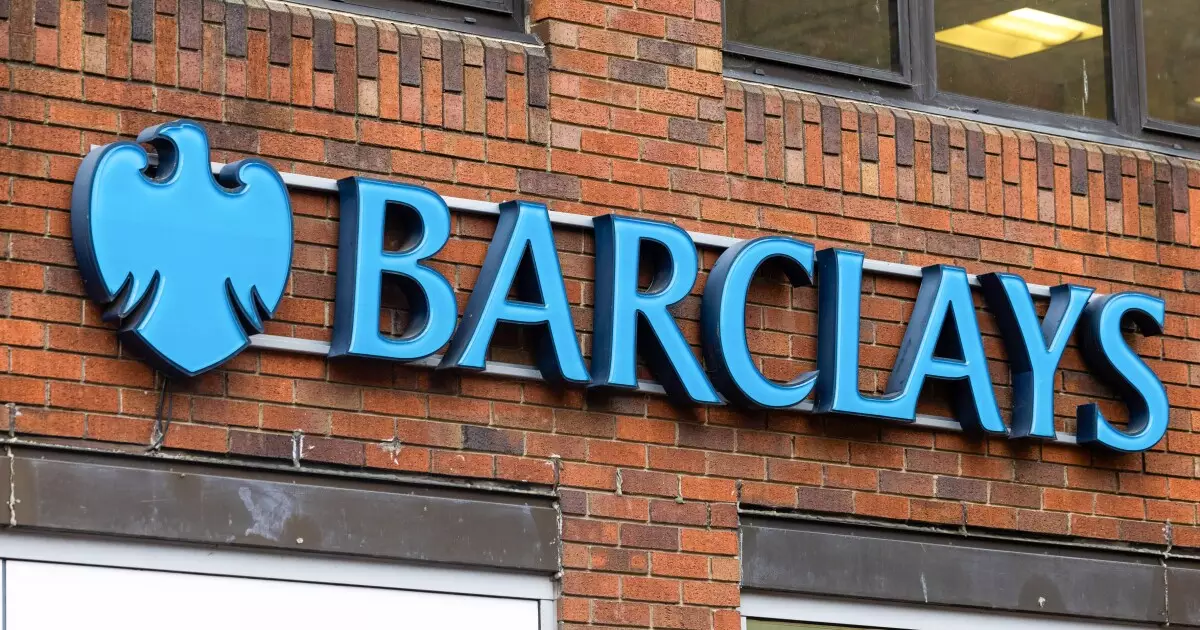The municipal finance sector has recently witnessed a startling trend that raises significant questions about the corporate culture at Barclays Plc. After handing out bonuses mid-March, an astonishing ten employees from its municipal finance team exited in frustration over compensation, triggering a ripple effect across the industry. Could this mass exodus be a red flag for other banking giants, or merely an isolated incident fueled by current economic pressures? Whatever the case, the departures paint a concerning picture of employee sentiment within one of the largest banks in the world.
It doesn’t take a magnifying glass to see the correlation between the timing of the annual bonuses and the subsequent employee dissatisfaction. While it is common for firms to reward staff financially in high-performing sectors, the aftermath suggests that Barclays might have misread the morale of its workforce. The reality is simple: if the employees who drive the business feel underappreciated, it’s the bank’s deep-rooted culture that’s at stake.
An Eye on Retention and Recruitment
In an era where talent is a prized possession, the departures raise the question of how effectively Barclays is retaining its valuable employees. With nine out of the ten who left being key figures in sales, trading, and underwriting, one cannot help but wonder whether a thriving work environment is being undermined. At the same time, the bank has moved quickly to replenish its ranks with nine new hires, a clear sign of urgency but also an admission of failure in retention strategies.
Why did Barclays lose such an esteemed portion of its team? Compensation disputes often serve as the final straw in a complex web of factors affecting employee satisfaction, but they also reveal deeper institutional flaws. Were the bonuses inadequate or poorly communicated? Did the departing employees feel their contributions were undervalued? The fact that some have already found new positions suggests that job security could be another underlying issue, indicating a need for Barclays to rethink its approach to employee relations.
Shifting Landscapes and Competitive Market Pressures
The departures from Barclays come amidst a backdrop of shifting dynamics in the municipal finance market. As other financial institutions like Citi and UBS recently made their own exits from the muni sector, the question remains: will Barclays double down or reconsider its place in the market? The bank’s past considerations to exit the muni market signify internal turmoil that might contribute to an unstable job environment, raising questions about the institution’s long-term viability in this realm.
To their credit, Barclays has taken steps to fortify its municipal finance team by bringing in fresh talent. Yet, this alone may not shore up the corporate culture that appears to have played a significant role in the recent departures. The influx of new hires—albeit necessary—cannot mask the symptoms of a deeper malaise that may require reevaluation of compensation strategies and workforce engagement tactics.
The Implications of Leadership Decisions
For any organization, attracting top-tier talent is essential, but what happens when seasoned veterans depart? The losses include employees with decades of experience, like Frank Vitiello and Thomas Greco, who not only served as pillars of stability but also embodied the firm’s historical foundation. Losing such institutional knowledge is detrimental, and Barclays’ leadership must realize that retention should be as much a priority as recruitment.
Leadership decisions will inevitably shape employee sentiment long after the dust settles from these departures. How will Barclays adapt its policies to make the remaining talent feel secure and appreciated? Will they re-evaluate how they incentivize and reward high performers, especially when they are becoming increasingly sought after in a tightening job market? The onus falls on executives to craft an environment that encourages loyalty—not just to draw new talent but to keep the ones already on board.
Navigating the Future
While Barclays sits 10th among managing underwriters of municipal bonds, with a market share that reflects both strength and potential weaknesses, the turning point may arrive sooner than expected. If the bank can navigate the fallout effectively, it could emerge as a stronger player, but if they allow current uncertainties to dictate their trajectory, they will risk not just their share in the market but their reputation as an employer of choice. The message is clear: a bank may deal with finances, but its most valuable asset is its people—an asset that requires unwavering focus and sustained investment.


Leave a Reply